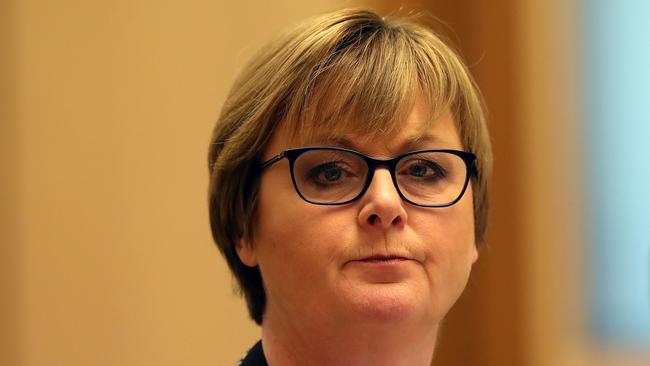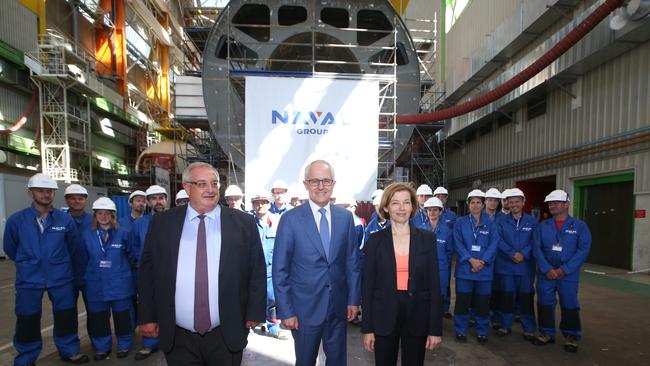Ministers to meet regularly in bid to keep Australian work in Future Submarine program above water
The Australian and French ministers will meet regularly to support Australian industry in the $80bn future subs program.

Defence Minister Linda Reynolds will meet her French counterpart Florence Parly every three months in a bid to ensure Australian businesses are not overlooked for contracts on the nation’s $80bn French-designed future submarines.
Senator Reynolds and Ms Parly, the Armed Forces Minister, announced the quarterly reviews of the project on Friday, after France’s Naval Group warned Australia’s industrial capabilities were falling short, and refused to say whether local firms would get even half the subs’ contracts.
The warning, revealed exclusively by The Australian, sparked a backlash by the Morrison government and the nation’s defence sector.
The leaders, who met on the sidelines of the Munich Security Conference, said they had reviewed the strategic partnering that underpinned the Future Submarine program, and both countries were committed to working together to make it a success.
“Both of us reaffirmed our full commitment to the program, in particular with respect to schedule and Australian industry capability,” the ministers said in a joint statement.
“We have agreed on an ongoing process to review, at our level, the implementation of the program on a quarterly basis for the rest of this year, meeting again in France in April and Australia in mid-year.
“We acknowledge the Future Submarine program is key for both our countries and our strategic partnership.”
Naval Group Australia chief executive John Davis told The Australian this week that the capability of Australian suppliers was presenting unforeseen challenges, and the company was unsure whether the value of contracts to local firms would reach 50 per cent.
“We didn’t know the Australian market before we joined the program,” Mr Davis said.
“Now we have a much deeper insight, and we recognise there is a lot more work to be done than we anticipated.”
Senator Reynolds said on Thursday she was “disappointed” by Mr Davis’s comments and would discuss “our very clear requirements to lift Australian industry capability” with Ms Parly at a security conference in Munich on Friday.
Labor defence spokesman Richard Marles said if the government wanted to ensure sufficient opportunities for Australian companies, it should have mandated a target.
“The Collins class, which was initiated under a former Labor government, had a target of 70 per cent, and that was exceeded,” he said.
While the build of the submarines is scheduled to commence in two years, the Defence Department released on Thursday a list of just 137 Australian suppliers to the project, which included hotels, removalists and recruitment agencies, and the local branches of at least 26 foreign companies.
The auditor-general revealed in January that the government’s Naval Shipbuilding Advisory Board was so concerned about the subs project it warned Defence it should consider walking away from the French-built boats.
The auditor-general said the submarines’ design phase was running nine months late, and “Defence cannot demonstrate that its expenditure of $396m … has been fully effective” in achieving key milestones.
The report also revealed Defence had approved the fabrication of complex hull parts for the first future submarine to be undertaken in France, rather than Australia, to guard against delays to the build schedule.
The 12 submarines will be the world’s most expensive conventionally-powered boats, thanks to the Australian government’s long list of capability requirements, and its decision to build them in Adelaide rather than buy “off the shelf”.

When he announced Naval Group as the winning bidder in 2016, then prime minister Malcolm Turnbull said the project would create 2800 Australian jobs.
Naval Group – then known as DCNS – said the deal would create 4000 jobs in France.
The first of the submarines won’t be delivered to the navy until at least 2032, with the following boats delivered every two years.




To join the conversation, please log in. Don't have an account? Register
Join the conversation, you are commenting as Logout